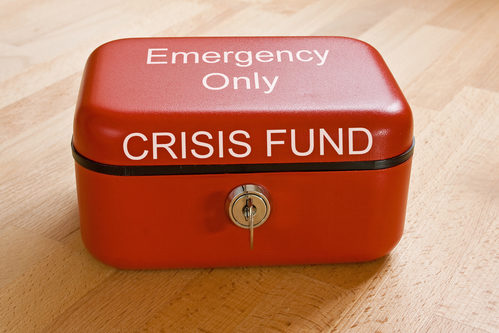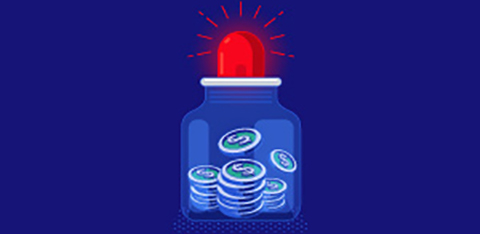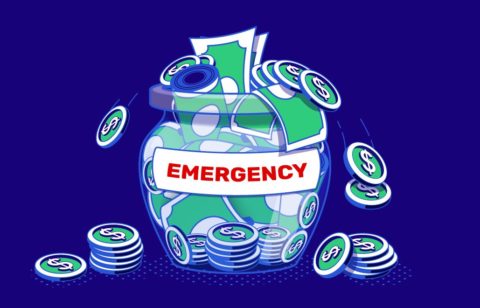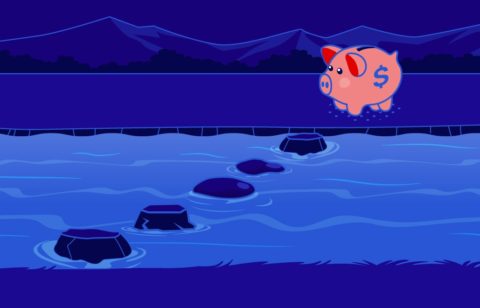Your reserve fund is meant to be used for emergencies. Let us assume that after you have spent months saving up for your emergency fund, you have finally reached your target amount. This is a great feat because saving can keep your finances from flying apart. Whatever amount you have in this fund can help you get out of another tight spot.
But that is the challenge here. How can you build up your emergency fund once you have spent it for an unexpected event?
When you have an emergency fund, you are actually better than 62% of Americans. Bankrate asked survey respondents what they would do if they are faced with an unexpected emergency that will cost them $500 to $1,000. It is revealed that 57% of the respondents will not use their savings. To be specific, 26% will reduce their spending on other things, 16% will borrow from other people, 12% will use credit cards, and 3% will think of something. $1,000 seems like a very low target for a reserve fund and it appears like a lot of Americans do not even have this amount in their savings.
If you have just spent your emergency fund – you may be in better shape than all these people. Of course, you are no longer as secure as you once were because you blew out your savings. This is why you need to work as fast as you can in rebuilding your reserve fund.
How to build up your emergency fund after spending it
There are a couple of things that you can do in order to get back the amount that you spent in your last emergency. You may be feeling relieved because you had that money saved up when you needed it the most. Imagine what would have happened if you didn’t?
Well to give you an idea, here is a video from Forbes that discusses what it can cost you if you do not have a reserve fund to get you out of tight spots.
We all know that it is difficult to not have the money to get out of tight spots. What you learned from the video should give you some motivation to build it up quickly.
Here are some tips that we have for you.
Revisit your budget.
The first thing that you need to do is to look at your budget plan. If you have to save up for something fast, you need to make sure that it is aligned with your budget. The good thing about putting your saving goals in your budget plan is you can ensure that your allocation will be there each month. If you put it in your priority list, you will be reminded that you have to put aside money for your reserve fund.
Now revisiting your budget would help you identify if you have enough income to set aside to rebuild your emergency fund. If not, you can figure out your next steps in order to reach your saving goal.
Be a smart spender.
The next step on your to do list is to take a look at your spending and to improve it. Since you have to continue spending in order to survive, you should learn how to be a smart spender. Take note that our definition of smart spending is not only saying no to expenses that you cannot afford. That is already a given. If you really want to be smart when it comes to your expenses, you need to learn how to say no – even when you can afford to pay for something. Even if you can use your credit card to pay it off – do not do it. You need to stick to the expenses that are necessary at present. The rest should be invested in your future. Your reserve fund is one of the investments that you can make. Remember the video we shared earlier? Think about what it will cost you if you did not have the emergency fund to spend on unexpected expenses. If you eliminate the unnecessary spending, you can increase the amount that you can save.
Increase your income.
To help you put more money in your emergency fund, you should also look for ways to increase your income. In case your income is not enough to help you build up your funds immediately, you can look for ways to boost your monthly cash flow. If your intention is to simply rebuild your reserve fund, this increase can only be temporary. You do not really have to get a second job or something. But if you can set up a source of passive income that you can make permanent, then that would really help your finances in the long run. However, if you can only set up a temporary financial boost, then that is alright. Among the things that you can do is to declutter your home and sell off things that you do not need. The profit that you will earn can be sent towards your reserve fund.
These three should be enough to help you rebuild your emergency fund as fast as possible. As you work diligently in saving, just pray and hope that no unexpected expense will happen in the near future.
How much money should you put aside for emergencies
After the emergency that you had to go through, you may want to ensure that the next unexpected expense will no longer wipe out your savings. If this means you have to increase your reserve fund target, then that is what you should do.
However, this is something that you need to be careful with. You need to set a reasonable emergency fund target – but at the same time, you do not want to overdo it.
There is an article published on GetRichSlowly.org that tells us something about putting too much money in your savings. This article hinted that you could waste money if you put too much in your emergency fund. This is money that you usually put in your savings account because you want to be able to access it immediately when you need to. The problem with savings accounts is that it only gains you a small interest. If your retirement or children’s college fund earns 23% (as was stated in the article), you might feel bad about the money you have in your reserve fund.
So here is another challenge, how much money should you put aside for your reserve fund?
The answer to that will depend on your personal situation. Your emergency savings will depend on what you need to spend on. According to an article published on BusinessInsider.com.
You need 3 months worth of monthly expenses if…
- You are a healthy individual.
- You do not have dependents.
- You can live well within your means.
You need 6 months worth of monthly expenses if…
- You have a dual-income family.
- You have dependents.
- You rely on variable or commission-based income.
You need 8 months or more worth of monthly expenses if…
- You have a single-income family.
- You have or one of your dependents have a health problem.
- You are old or retired.
This is something that you need to consider if you want to be able to save just the right amount of money in your reserve fund. It helps to just start with your budget. Analyze what you need to do and be very honest with what you need in your financial life. By doing that, you can set up a fund that is enough for what you may require if an emergency happens.







